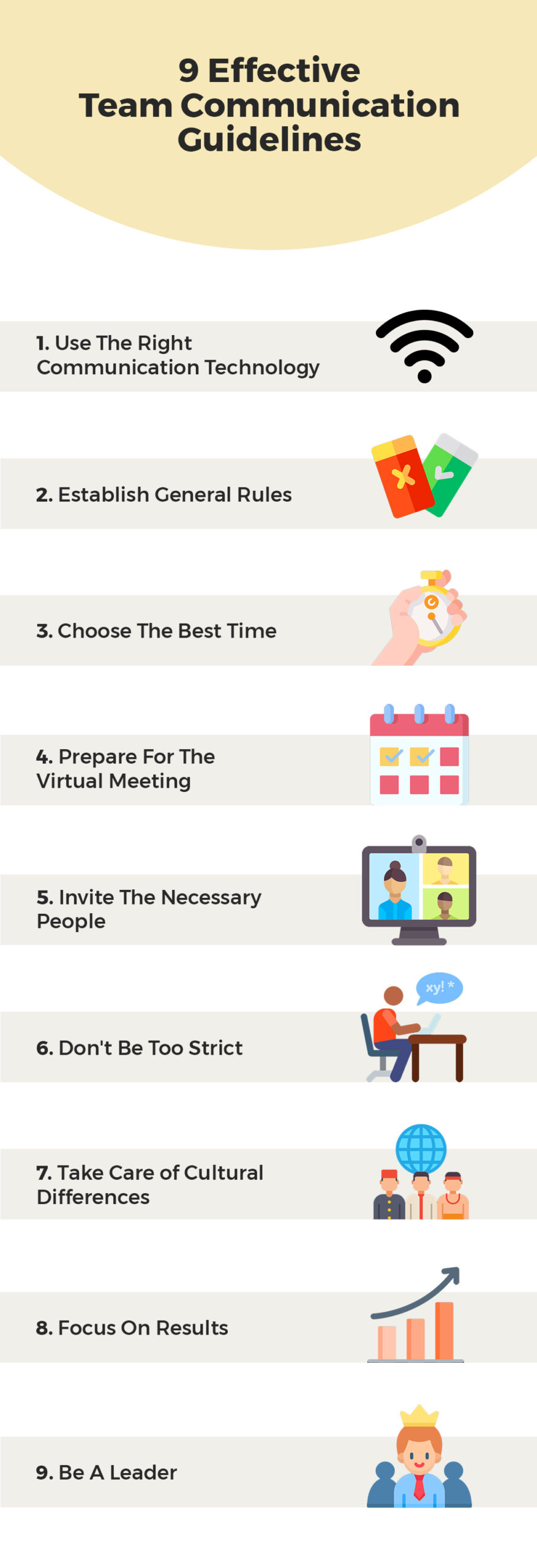When you’re working with developers geographically distributed in a virtual workplace, quite a few issues can come up while planning a meeting. In remote teams, it’s important to make sure that your group is communicating effectively in each virtual meeting. Effective team communication results from a joint effort between team members.
Remote work isn’t going anywhere. The number of people working remotely is increasing, and stats suggest a global shift to hybrid models even in a post-pandemic scenario. Likewise, the IT staffing industry and the hiring market are moving towards remote work arrangements.
As a team manager, it’s your priority to guide your team members and ensure effective virtual communication in the virtual workplace. If you haven’t used virtual meetings yet, most likely you will soon. So here are some tips and guidance from people (us!) who have been working remotely for over a decade.
How Do You Achieve Effective Team Communication in a Virtual Setting?
Think of it this way: how much will this meeting cost in terms of time and outcome? The first step to achieving a productive team interaction is to estimate what you want from your team members. Generally speaking, there are two main reasons to arrange meetings in a virtual workplace.
Firstly, you want to engage in casual conversation to encourage teamwork. For example, let’s imagine you need to introduce a new hire or start a collaboration between different departments. In this case, it’s essential to spend time talking to each other. But it would be a waste of time to spend an hour sharing opinions on individual tasks. Or even worse, talking about unnecessary projects as an excuse to bond. People want to feel part of a team but not waste their time.
Secondly, you need to make a decision, solve a problem, or generate ideas to move forward with your project. In this case, the focus of the meeting is to reach a common agreement to move on with tasks and meet expectations. For example, you need to improve the Chabot on your webpage following a few negative reviews. In this case, you will start the conversation with your developer and marketing manager to find new original ways to improve the user experience.
You must structure the schedule of the video call, giving your team members time to prepare and contribute. Here, you can:
- Make a checklist.
- Figure out the bullet points to follow and who to ask to start a productive discussion.
- Instead of reviews of sharing data, drive the conversation on possible strategies encouraging collaborative solutions.
The point in both cases is to make everybody’s time valuable and worthwhile.
9 Effective Team Communication Guidelines
Whatever your goal is, you need your team to communicate and collaborate. Here are 9 tips to communicate effectively with your team during virtual meetings
- Use the right communication technology
- Establish general rules
- Choose the best time
- Prepare for the virtual meeting
- Invite the necessary people
- Don’t be too strict
- Take care of cultural differences
- Focus on results
- Be a leader

1. Use The Right Communication Technology
Your efforts won’t matter if you fail to ensure each team member has the right technology. First, make sure they have a good Internet connection. Just consider that 89% of remote workers waste more than 30 minutes daily because of lousy Wi-Fi for the Zen Internet report. In the same vein, a Whistleout survey counts 83% of remote employees that would feel more productive without the Internet for less than half the day.
Choose the right platform. If you need to discuss future steps or encourage teamwork, Zoom or Microsoft TeamMeeting is more than enough. Or, if you need to look at code reviews, designs, or HD files, you want to expand your research to find the platform that suits you the most – like whiteboards or Github.
To sum up, make sure that everyone gets training on your communications tools and that they are reliable products. After all, there’s nothing worse than trying out a brand new group video conferencing tool for the first time during a scheduled meeting to learn that it doesn’t work.
2. Establish General Rules
One thing that’s important to keep in mind about remote workers is that they don’t work on a typical 9 am – 5 pm job. Because of different time zones or working habits, you need to consider what everybody is doing. Although 4 pm might be best for you, it could be the middle of the night for others. Even if a remote developer agrees to have a meeting very early or late in their day, they likely won’t be at their best and can’t contribute as necessary to the conversation.
Respecting individual schedules, you need to set some rules like regular meetings and weekly reports. It would be best to schedule a set time every week because you can leave your team with enough flexibility and ensure a punctual workflow.
3. Choose The Best Time
Think carefully about the time when setting your regular meetings. To choose the proper schedule, let’s take the German philosopher Immanuel Kant as an example. He was famous for two things: his revolution of Western philosophy and his unbreakable routine. In one of his books on logic, he explains why his habits are so important. The morning is the best time to analyze and store new information, while the evening is the time to reflect and speculate after a walk.
Surprisingly, recent studies confirm his theory. Mornings are the best time to make decisions because people tend to be more thoughtful and accurate in their judgments. In contrast, afternoons are better for brainstorming since people tend to be more creative and think outside the box because our brains are tired!
Respecting this schedule in a virtual work environment is way more challenging. However, you can keep in mind and find the best compromise for you and your team members to ensure the best productivity.
4. Prepare For The Virtual Meeting
The next step to ensure effective team communication is to share a plan with preferably at least 24 hours’ notice. Setting regular meetings is helpful to avoid team members feeling disconnected from their co-workers. Clear bullet points ensure a productive discussion. You give everyone the chance to prepare for the topic and formulate necessary comments or questions.
The remaining essential standards that you should implement are small ones. For example, constantly reminding participants to turn off their notifications or wave hands to share comments. Whatever works for you, the goal is to get everyone participating and feeling free to share thoughts. Finally, it’s great to have a note-taker who can then post these notes to a shared, online file to guarantee to remind important points and next goals.
5. Invite The Necessary People
Another tip to ensure effective team communication is to limit the number of participants whenever possible. Calling only the necessary people provides a better flow, allowing everyone to get involved.
There is nothing more distracting than unnecessary comments or endless discussions. If you need to brainstorm on a future sales or marketing campaign, you want to engage just enough perspectives and skill sets to find a quick solution. When you need to solve a specific problem, you only need those who can decide how to solve the issue.
Set your agenda, and limit the participants to save time and productivity.
6. Don’t Be Too Strict
It’s great to have a set agenda for a meeting, be punctual, and not waste anyone’s time. However, it’s nice to work some team-building exercises into your virtual meetings. For example, everyone could quickly introduce themselves and give an ‘elevator explanation’ about what they’re working on. Especially in a virtual workplace, it’s important to leave time for virtual team building.
Socialization isn’t about making your team members best friends. In the long run, it impacts the workflow. If people don’t feel comfortable, they won’t ask questions during meetings and work on tasks incorrectly. If you let this attitude spread to more team members, you will work on miscommunication rather than feedback. Make sure not to waste time yourself!
7. Take Care of Cultural Differences
Sometimes, communicating among different cultures can be slightly challenging because of different languages and customs. A solid grasp of English is necessary as much as the right technologies. So, their communication with your team shouldn’t require any extra thought.
However, sometimes stress for imminent deadlines and ambiguity of things like debugging might confuse developers. In this case, it’s wise to have a moderator in place during meetings to make sure everyone is on the same page. This moderator can respect and follow the agenda and engage with each team member and organize future actions.
To address this potential issue more in-depth, be sure to educate all of your employees about relevant cultural differences. For example, while some cultures might not mind interruptions, others consider them extremely rude.
Agree on a common language, double-check people listened to and understood, and educate your remote developers on important cultural nuances. It will lead to more effective team communication during virtual meetings.
Ps. Don’t forget to moderate humor. For some cultures and people, a certain type of humor is very offensive, and creates barriers among team members. Make sure to monitor everyone’s reactions and use humor as a tool to bond rather than create distance!
8. Focus On Results
Never close a virtual meeting with ‘maybes.’ What you don’t want is to leave the same feeling you get after inconclusive discussions. ‘Maybe’ means that you didn’t set any further actions, and your team members will carry on doing the same ineffective things. Sometimes it will mean being harsh or pushing someone, but make sure you get some results. Your team members must feel involved and know that they aren’t wasting their time on useless tasks. You want them to improve and give you the best results. Use online meetings to motivate them and reward their results.
9. Be A Leader
Last but not least, don’t forget you are the leader. You must guide your team members to find effective team communication. As we said initially, it’s the result of a joint effort. So, you must monitor your team members’ interactions and observe their humor, attitude, and personality. If you find the right balance between them, you will achieve effective group communication and constant productivity.
Effective Team Communication And Conversation Start With Hiring The Right Team Member
Remember that each team is unique, especially in a virtual setting. If you follow the above tips, you can adjust your meeting over time, finding the best practice for you and your team members. Before thinking of effective team communication, however, be extra careful during the hiring process!
That’s right. A wrong candidate will negatively impact your teamwork as much as evil communications or weak Internet. So, make sure to hire the right people, or ask help from someone who won’t fail – like us! At DistantJob, you can find expert recruiters specialized in remote work and IT professionals. We take care of the hiring process with you and ensure smooth onboarding of the new hire. Contact us with any questions!





